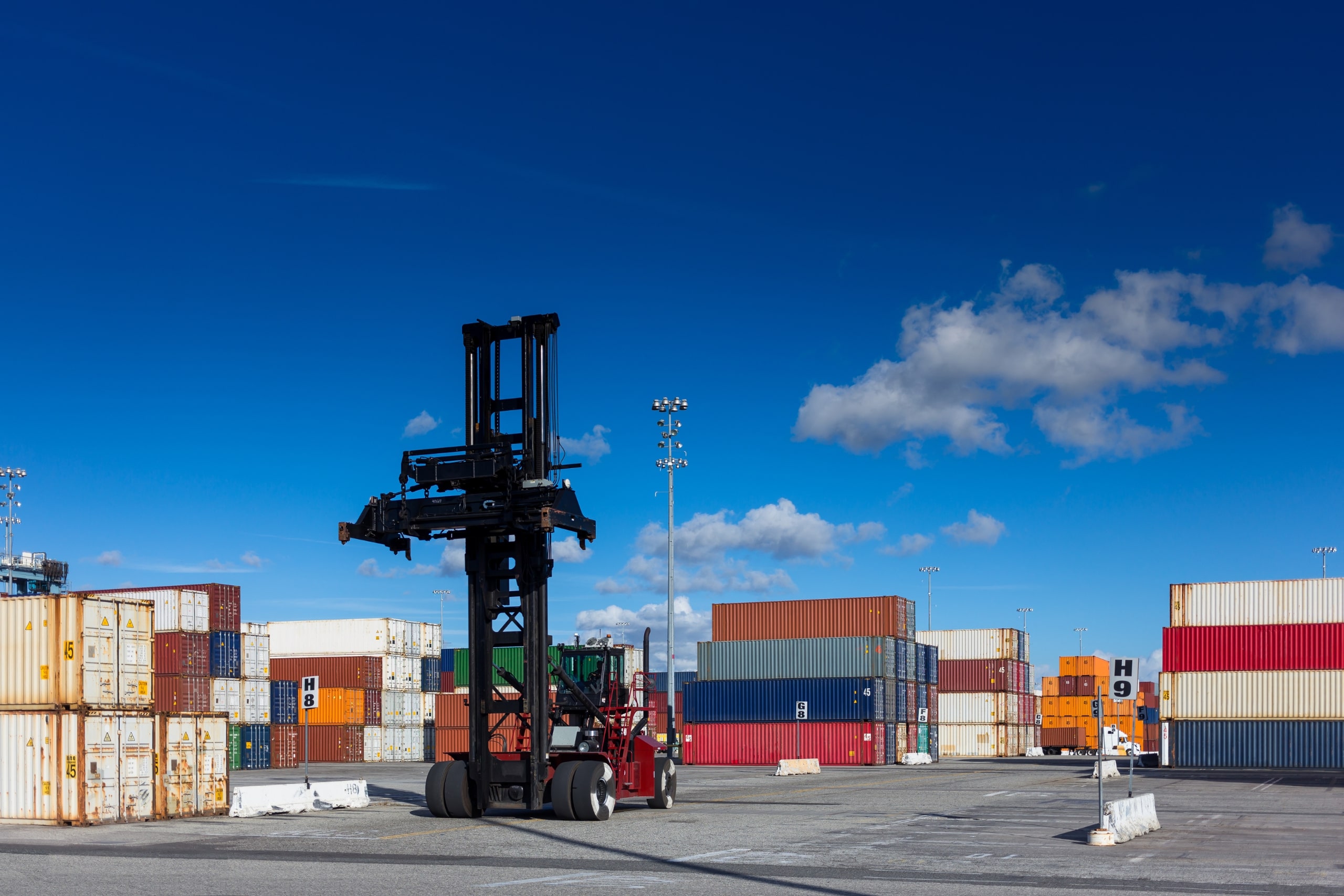In today’s fast-paced supply chain landscape, staying competitive means more than simply moving goods from point A to point B. It requires precision, adaptability, and visibility at every stage of the journey. That’s where technology comes in, not as an add-on, but as a critical driver of supply chain efficiency.
As logistics networks grow more complex and customer expectations evolve, leveraging technology in supply chain management is no longer optional. Companies that integrate the latest tools and systems are better positioned to optimize operations, control costs, and deliver consistently high service levels. Let’s explore the technologies shaping modern supply chains and how they’re redefining performance.

Why Technology is Crucial to Modern Supply Chain Management
The challenges facing supply chain leaders today are multifaceted: supply disruptions, labor shortages, fluctuating customer demand, and the constant pressure to reduce costs. When any part of the chain breaks down, the ripple effects can be costly, not just financially, but also in lost time, trust, and opportunity.
For shippers and businesses navigating this reality, technology offers a strategic advantage. It enables real-time decision-making, enhances visibility across operations, and unlocks efficiencies that would be impossible with manual systems alone. Simply put, technology helps supply chain stakeholders stay agile, informed, and competitive.
Key Technologies Driving Efficiency in the Supply Chain
Artificial Intelligence & Machine Learning
Artificial Intelligence (AI) and Machine Learning (ML) have become essential tools in predicting trends and optimizing logistics operations. AI-driven systems can forecast demand with impressive accuracy, allowing businesses to align production and inventory levels to market needs. ML algorithms also help identify inefficiencies within a supply chain by analyzing vast amounts of data quickly, something no human team could do at scale.
However, it’s important to remember that these technologies are only as good as the data they’re fed. Without clean, quality data, predictions can fall flat, leading to misguided decisions.
Internet of Things (IoT)
The Internet of Things has revolutionized real-time tracking and asset visibility. By using connected devices, like GPS trackers and smart sensors, logistics teams can monitor shipments, equipment, and environmental conditions throughout the supply chain. This visibility enables proactive responses to delays or disruptions before they escalate.
For example, IoT devices can alert operators if a shipment of temperature-sensitive goods starts to drift outside of acceptable thresholds, reducing spoilage risk and ensuring product integrity.
Robotics & Automation
Automation is transforming warehouses and distribution centers across the globe. Robotic picking systems, automated storage, and retrieval tools streamline order fulfillment, reducing human error and speeding up throughput.
Companies introducing automation often start with the most repetitive, time-consuming tasks. This phased approach minimizes disruption while maximizing early returns on investment.
Blockchain Technology
While still an emerging player in the logistics space, blockchain holds significant promise for enhancing supply chain transparency. By creating an immutable ledger of transactions, blockchain ensures that every movement of goods is recorded and verifiable. This level of traceability is particularly valuable in industries with strict compliance requirements, like pharmaceuticals or food safety.
As adoption grows, we expect blockchain to play a larger role in reducing fraud, improving compliance, and building trust among supply chain partners.
Cloud-Based Supply Chain Platforms
Cloud technology enables supply chain stakeholders to access shared data, tools, and insights from anywhere in the world. These platforms support collaboration across suppliers, carriers, and customers by centralizing information in one accessible system.
For businesses evaluating a cloud-based supply chain platform, scalability and integration capabilities are key. The right solution should grow with your operations and easily connect to other critical systems in your tech stack.

Smart Questions to Ask When Implementing Supply Chain Technology
Before diving into new supply chain technologies, it’s essential to ask the right questions:
- What specific challenges are we trying to solve with this technology?
- How will this solution integrate with our existing infrastructure and tools?
- What training and support will be needed to ensure successful adoption?
- What is the projected ROI and over what period?
- Are there regulatory or security considerations to address with this technology?
These questions help ensure that investments are purposeful, scalable, and aligned with broader business goals.
Why Choosing the Right Technology Partner Matters
Implementing advanced technology is one thing; having the right partner to guide you through it is another. A trusted logistics provider that understands the nuances of supply chain technology can make all the difference.
At R2 Logistics, technology is built into the core of our service model. Our Transportation Management System (TMS) offers clients real-time visibility into their logistics networks, enabling smarter decisions and better outcomes. Whether it’s optimizing routes, tracking shipments, or mitigating risks, our tech-driven approach helps clients streamline their supply chains and enhance performance.
Working with a logistics expert who combines advanced technology with strategic insight allows businesses to stay focused on their core strengths while we manage the complexities of the supply chain.
The Path to Smarter Supply Chains
In the world of supply chain management, efficiency is the name of the game, and technology is the key to unlocking it. As the industry continues to evolve, staying ahead requires a proactive approach to integrating solutions that enhance visibility, agility, and control.
If you’re ready to explore how technology can elevate your supply chain, our team is here to help. Contact us today to learn more about our technology-backed logistics solutions.
